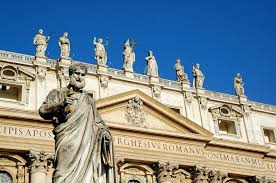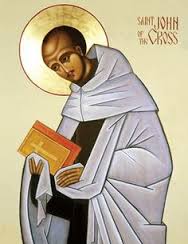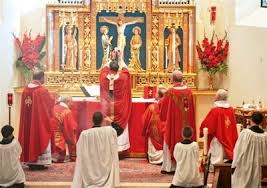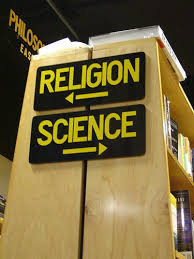 We Catholics sell ourselves short. As individuals, often; that will vary from person to person. But more importantly, we underestimate ourselves as a Church, founded by Christ, a divine institution of supernatural, near infinite, power, which we sorely, and sadly underutilize and underestimate. We are not what we are meant to be, which is why the Church is so apparently ineffectual in its attempt to evangelize, to be the leaven in the world, and to shape and influence the culture in which we live.
We Catholics sell ourselves short. As individuals, often; that will vary from person to person. But more importantly, we underestimate ourselves as a Church, founded by Christ, a divine institution of supernatural, near infinite, power, which we sorely, and sadly underutilize and underestimate. We are not what we are meant to be, which is why the Church is so apparently ineffectual in its attempt to evangelize, to be the leaven in the world, and to shape and influence the culture in which we live.
Readers have asked for some signs of hope, so here we go. Hope, as a virtue, has as its object a good that is difficult, but possible, to achieve. Bringing out the true nature and strength of the Church might be difficult, but it is perhaps the most important ‘good’ that the world needs.
The ‘goods’ of the Church that need to be more manifest are many, but in this brief article, I will group them into four: The moral, the spiritual, the liturgical and the intellectual. I will introduce them here, and hopefully pen a series of articles on each as time goes on.
 Moral: What would the Church, and the world, be like if every Catholic in the world lived a basically morally good life? If they strived to avoid at least mortal sin, if they followed the commandments at least in grave matters, listened to the Magisterium, told the truth, did not steal, put into effect the principles of social justice, lived their conjugal lives according to Humanae Vitae and the Theology of the Body, all of which, although at times difficult, are very simple and eminently ‘doable’.
Moral: What would the Church, and the world, be like if every Catholic in the world lived a basically morally good life? If they strived to avoid at least mortal sin, if they followed the commandments at least in grave matters, listened to the Magisterium, told the truth, did not steal, put into effect the principles of social justice, lived their conjugal lives according to Humanae Vitae and the Theology of the Body, all of which, although at times difficult, are very simple and eminently ‘doable’.
In many ways, other religions seem to have us beat on this score. Sad to say, that a majority of Catholics do not live an integral moral life, and many have either convinced themselves that their chosen mode of life (pre-marital cohabitation, contraception, sterilization, cooperation in abortion, greed, avarice and deceit) is a good and noble thing. Either this, or they have simply given up, and let moral entropy and lassitude take their course.
I say that other religions ‘seem’ to be ahead of us, for the Church not only has the fullness of moral teaching, waiting to be lived out, but we also have numerous individuals who do live a good moral life, both inside and outside the visible Church. If even a few more imitated this at the most basic level, if there were a few more even dimly burning wicks, the world would be a very different place.
 Spiritual: There is no such thing as a naturally good Man, or Rousseau’s mythical ‘noble savage’, for we are created both natural and supernatural beings, and it is requisite that we live at some level of spiritual, supernatural existence to be ‘good’. That is, beyond the fundamental moral level of ‘avoiding grave sin’, and ‘being nice to others’, there is the much-forgotten-and-neglected Catholic doctrine of moral perfection, growth in the spiritual life and the imitation of Christ, what may be described as ‘holiness’.
Spiritual: There is no such thing as a naturally good Man, or Rousseau’s mythical ‘noble savage’, for we are created both natural and supernatural beings, and it is requisite that we live at some level of spiritual, supernatural existence to be ‘good’. That is, beyond the fundamental moral level of ‘avoiding grave sin’, and ‘being nice to others’, there is the much-forgotten-and-neglected Catholic doctrine of moral perfection, growth in the spiritual life and the imitation of Christ, what may be described as ‘holiness’.
Yet how many Catholics strive for sanctity, and take advantage of the numerous means to holiness the Church offers? Saints as our exemplars and intercessors in this realm should not be museum pieces, or outlines in colouring books, or mentioned briefly by name at Mass, (if they are mentioned at all; see the liturgical section below), but lived realities, whom we not only invoke, but imitate, who are our daily companions on this earthly journey towards eternity, especially through the difficult moments, even to the point of martyrdom.
Holiness is not an impossible pious exercise for the very few, but rather a duty incumbent, to one degree or another, upon all Catholics, as Vatican II made clear. There is a practical science to spiritual growth, developed from the Fathers of the Church, and outlined by a number of incisive, clear-thinking theologians, many of whom were also saints, some Doctors of the Church (‘doctor’ here in the sense of ‘teacher’ of the path to holiness).
Sadly, this is even more neglected than the moral aspect of the Church’s teaching. Most Catholics may have heard of Saint Therese and her ‘little way’ (not knowing exactly what this means), and behind her stands a whole history of saints, their writings, their lives, demonstrating the way to sanctity and perfection. Many, influenced even subliminally by a Nietzschean view, see holiness as a weakness, as effeminate. Few even seem to want to be holy, misunderstanding what it even means.
But holiness is a strength, the power, with Christ, to do ‘all things well’. Would that this were made more clear.
 Liturgical: This is in many ways the most important and fundamental aspect of Catholicism, with the Eucharist as the ‘source and summit’ of all the Church’s striving. We should recall that Liturgy is the Opus Dei, the ‘work of God’, not the ‘work of Man’. As such, the first and basic response to Liturgy should be obedience to what God, through the Church, decrees.
Liturgical: This is in many ways the most important and fundamental aspect of Catholicism, with the Eucharist as the ‘source and summit’ of all the Church’s striving. We should recall that Liturgy is the Opus Dei, the ‘work of God’, not the ‘work of Man’. As such, the first and basic response to Liturgy should be obedience to what God, through the Church, decrees.
We have all heard of clown Masses and worse outrages, but I am always saddened by even the small, apparently deliberate, disobediences and liberties even of good priests (and laypeople) at Mass and other sacraments.
As the Catechism states (#1125):
“…no sacramental rite may be modified or manipulated at the will of the minister or the community. Even the supreme authority in the Church may not change the liturgy arbitrarily, but only in the obedience of faith and with religious respect for the mystery of the liturgy”
The Church has decreed laws and guidelines for the Liturgy, from the words of the rubrics, to the building of Churches, to the music, which, “is a treasure of inestimable value, greater even than that of any other art” (Constitution on the Sacred Liturgy, par. 112).
On that note, the Church has a music that is proper to the Liturgy, Gregorian chant (and its close cousin, polyphony), which is almost universally forgotten or ignored, outside of a few usus antiquior parishes. I cannot begin to imagine how much is missing in Liturgy because of this loss.
Particularly in Liturgy, we cannot simply do ‘what pleases us’, or what stirs up our (oft-misguided) emotions, but rather what God has asked. We are worshipping in and through Christ. Liturgy is not a secular, natural event, but a transcendent, sacred and supernatural work. Therefore, the music (and everything else in Liturgy) should be, as the Church decrees, made ‘apt for sacred use‘ (Constitution on the Liturgy, Sacrosanctum concilium, par. 112).
If Mass looks and sounds like an Adele or Mumford and Sons concert with a few pious words thrown in, or a pep rally with the ‘presider’ motivating the troops with his own ‘charisma’, what really are we doing?
And on a note of hope: I was pleasantly surprised, to say the least, upon reading of a talk given the other day in London, by Cardinal Sarah, the head of the Congregation of Divine Worship, wherein he has asked priest to begin saying Mass ad orientem, facing the ‘east’ and the tabernacle, as well urging Catholics to receive Communion reverently and kneeling, greater use of Gregorian Chant and Latin. The whole glorious speech has to be read to be believed. I can still scarcely believe it. And all, apparently, with the support of Pope Francis!
All I can say, is alleluia. Hope does spring eternal.
 Intellectual: Fewer bigger lies, distortions, half-truths, hyperboles, obfuscations and other monstrosities have been foisted upon the world than those told about the Church’s intellectual tradition (to which I have dedicated much of my own life, not to the lies, but to the tradition). The story goes that the Church has inhibited knowledge, science and empirical inquiry, leading to the ‘Dark Ages’ after the decline and fall of glorious, pagan Rome, before the neo-pagan Enlightenment brought back science and knowledge after centuries of obscurity.
Intellectual: Fewer bigger lies, distortions, half-truths, hyperboles, obfuscations and other monstrosities have been foisted upon the world than those told about the Church’s intellectual tradition (to which I have dedicated much of my own life, not to the lies, but to the tradition). The story goes that the Church has inhibited knowledge, science and empirical inquiry, leading to the ‘Dark Ages’ after the decline and fall of glorious, pagan Rome, before the neo-pagan Enlightenment brought back science and knowledge after centuries of obscurity.
Along with this narrative is the implicit (and now more explicit) premise that faith, and especially any organized religion, is contrary to reason, and embarrassing in a scientist. The only way to true intellectual freedom is to cast off the shackles of faith and religion, so that one may begin, in true Baconian fashion, to investigate ‘the world’ as a tabula rasa, an empty slate, free of any a priori biases.
It is difficult to know where to begin with such distortions, but a good place would be Pope John Paul II’s 1998 encyclical Fides et Ratio, a masterpiece of exposition on not just the harmony, but the essential complementarity between (true) faith (i.e., Catholicism) and reason. Of course, some faiths are contrary to science and truth (one thinks of voluntarism and occasionalism, which posits a whimsical, capricious and opaque ‘God’, rife within pagan religions, as well as Islam and some forms of Protestantism, for example).
But, as Pierre Duhem, Father Stanely Jaki, Stephen Barr and a host of others have amply demonstrated, the rigorous, coherent and realist theology of Catholicism is , even in an historical sense, necessary for proper science. The Church has been at the forefront of intellectual inquiry into the world (with some unfortunate and accidental bumps along the way). I will discuss some of these in subsequent articles, but far too few realize how necessary faith is for proper science, what John Paul II described as the necessary metaphysics to intellectual inquiry.
And more: Even within the Church, I know, or at least have heard, of many Catholics, and many groups, who disdain, or at least minimize, such intellectual formation. By ‘intellectual formation’ I do not mean a smattering of watered-down Catechism received in Confirmation class or in ‘Catholic’ high school or even a local homeschooling group, but some level of mature and adult immersion in the rich intellectual history and doctrine of the Church and the culture which she helped to build and form. Pius XI taught that Catholics should have knowledge of their faith which matches their secular knowledge.
One need not be an academic or dedicated to an intellectual apostolate to receive such. In fact, I would argue (with John Paul II) that such formation of the mind is requisite for every Catholic to some extent. In many ways, this is even more fundamental than Liturgy, for how can one appreciate the Mass and prayer and the moral life without some deep knowledge of what these are, their purpose and their effects in our life and soul?
In each of these four realms, we should not be content simply with basic obedience (although I would be happy if we started there), but we must strive for perfection as Christ commanded: To avoid not just mortal sin, but venial. To go beyond the basic minimum of the spiritual life, and strive for sanctity. To live a full liturgical life, beyond one-hour-a-week-in-and-out Sunday Mass, and to add to the Liturgy beauty, splendour and perfection. And, of course, to delve into the Church’s intellectual tradition, which includes our Christian culture. We must offer to God and to the world the very best of what the Church has to offer.
My point here is that even if Catholics did the bare minimum, what a different place the world would be! Like Naaman the leper, told to bathe seven times in the humble Jordan river, while he thought a deep dunk in his own Syrian rivers preferable, how much of the world’s leprosy would be cleansed by the simple obedience of Catholics?
But most scarcely do even what is basically asked. And without that basis, perfection is well-nigh impossible.
The weak, milquetoast, picayune, self-congratulatory ‘spirit of Vatican II’, which, as Joseph Ratzinger/Pope Benedict so forcefully wrote, is most definitely not the real spirit nor intent of the Council, has run its day. Even outside the more rebellious aspects, we cannot get by just with glad-handing and guitars, youth groups and prayer sessions, social justice and coffee-after-Mass. These all may be a good start, if done in obedience to the Church, as a way in the door, but people need solid doctrine and practice, to answer the more difficult and complex questions and see them through the dark and apparently hopeless days. The ‘many mansions’ of the Church are of infinite depth, which require a lifetime of exploration and appropriation, are left largely empty. Too many of us stay fearfully within the threshold, not daring, not willing, not motivated to enter into, and give to the world, what the Church really is.
I dare say that most of us have a far too attenuated and minimalist view of the Church, and hence her real strength lies untapped. Many people, especially young students at high school and university, leave the Church simply because they are embarrassed by her, or see her as irrelevant. How much can we blame them? In many of the Church’s current ‘manifestations’ of felt banners, treacly hymns, and intellectual and spiritual pusillanimity, what is there to attract them?
The Church is anything but irrelevant, and if we could possibly gain some sort of heavenly perspective, we would see how much our fragmenting world is held together by Catholicism, hidden and attenuated as that effect might be at times. As the great Saint Augustine put it in his own inimitable way, the world could more easily live without the Sun than without the Holy Mass.
Most would consider that a ridiculous statement from a benighted mediaeval monk, but ponder: Without the Sun, the world would suffer great physical evil, indeed, would cease to exist. But without the Church and the Eucharist, the world would be in the grip of great moral evil, without hope, without faith and without love. The old paganism was at least waiting in some way for Christ, and its deficiencies, dark and barbaric as they were, will pale compared with the evil rising from the new aganism, which will have no time and no tolerance for the Church. Unless we change course, we will soon be immersed in a post-Christian darkness we are only now beginning to imagine, as the light of the Church sets.
It may well be time for the Church, and that means we as Catholics, to be a little less ‘hidden’, to proclaim the truth from the housetops, to truly start living our Faith, not in some spirit of misguided evangelical and emotional zeal, but with courage, clarity, with charity. And, of course, with hope.
Then we would see the world set on fire, not with hate, which we have seen too much of late, but with love and truth.
Saint Maria Goretti, ora pro nobis!
